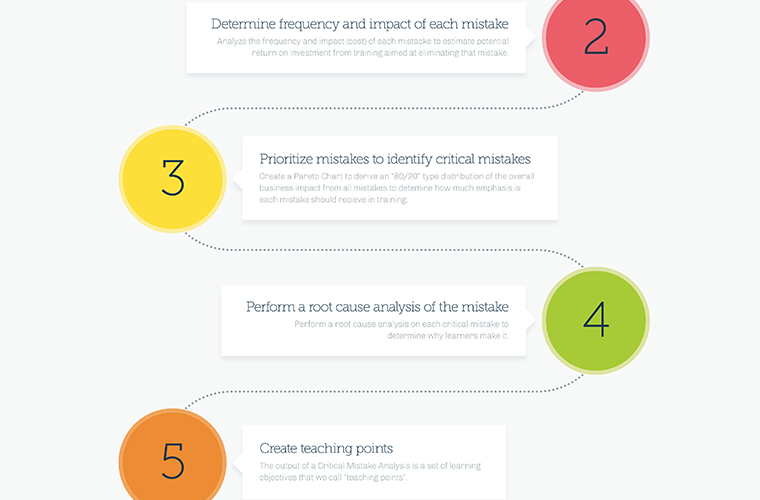Ready to make the move from instructional design to experience design?
Learn how we create highly engaging learning experiences.
Bespoke Training, Designed Just for You
Every business is different and so are its learning needs, driven by business goals and shaped by culture and people. You need a partner that can create bespoke training programs just for you. NIIT’s flagship curriculum design and content development offering is spearheaded by our specialist content development division, Cognitive Arts based in Evanston, IL. Using our proven design methodology and the most advanced media capabilities, we develop learning programs in all delivery formats, including instructor-led, online, blended, and collaborative learning. Our content development services are based on instructional design best practices, and our rigorous process enables us to deliver superior courses against predictable timelines.
18K+
Hours of customer content developed annually
500
Full-time instructional design professionals
25
Localization services in over 25 languages
130+
Industry awards
Capabilities
NIIT offers unmatched scale and flexibility in content development, with capabilities that include complex gaming and simulation, 2D and 3D animation, and high-end video. Our award-winning teams across Evanston, Dublin, Mississauga, Gurgaon and Sheffield develop over 18000?hours of custom content annually. Our flexible engagement models are designed to ensure that we work with our proven tools and infrastructure, or adapt to our customer’s preferred development environment. Our team of triple-A gaming professionals develop state-of-the-art gamification and AR/VR based solutions at our NIIT GameWorks studio in Sheffield, England.
The NIIT Advantage
How we create effective learning experiences
Determining what to teach can be a challenge for even the most qualified learning experts. Often, curriculum designers struggle to make a choice between what learners ought to know versus what they really struggle with.
Dr. Gregg Collins, Chief Learning Scientist at NIIT talks about our content development process.
Critical Mistake Analysis – our award winning and proprietary methodology
We employ our proprietary Critical Mistake Analysis (CMA) methodology to ensure business alignment and measurable results. CMA provides a practical framework to identify the mistakes that have maximum business impact and design learning challenges around them to create effective learning experiences.
A Platform-Agnostic Level Playing Field
We have implemented courses on multiple platforms and ensure that interoperability standards are met in all the content we produce. As a purveyor of LMS-ready content, our learning products are developed to “play” within the widest possible range of Learning Management Systems.
NIIT content is compliant with SCORM 1.0, 1.1, 1.2, and 2004. NIIT?is AICC Certified. During the delivery and implementation phase of a project, NIIT conducts a complete Quality Assurance to ensure course operability and eliminate unforeseen technical or functional issues. To ensure complete interoperability, we consult with our customers to fully understand requirements and develop a custom Quality Control Plan and testing procedure.
NIIT provides ongoing support to customers and their end users through a helpdesk for technical support questions and to address any functional issues.
Business Impact
Shell: Facilitating Technology Adoption for Improved Business Performance
Shell wanted to streamline the planning process across its Projects and Technology division to enable the worldwide adoption of standardized workflows and technology in a customized application. NIIT’s award-winning learning program helped thousands of users in 22 locations worldwide adopt the workflows and improve time to proficiency.
Leading Insurance Company: Award-Winning Global Curriculum
NIIT’s award-winning curriculum for a leading insurance company’s worldwide Partner Learning program has been implemented in over 30 countries worldwide with consistent and sustained business impact globally including a 20% increase in productivity.
















